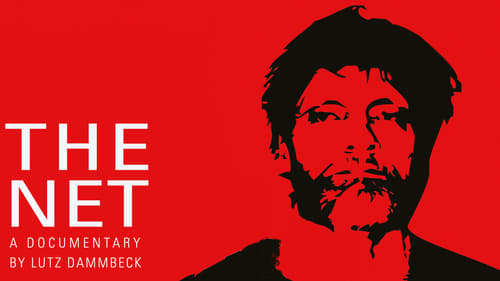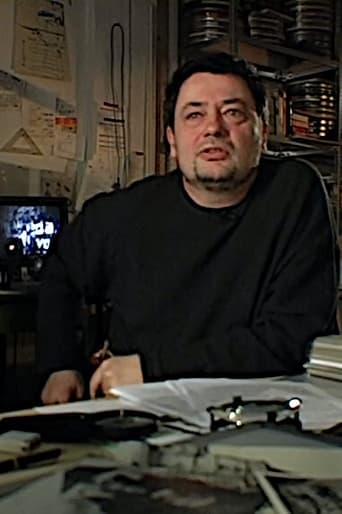Smartorhypo
Highly Overrated But Still Good
Nayan Gough
A great movie, one of the best of this year. There was a bit of confusion at one point in the plot, but nothing serious.
Kimball
Exactly the movie you think it is, but not the movie you want it to be.
Kayden
This is a dark and sometimes deeply uncomfortable drama
Kiers (Kiers77)
There is no denying the facts uncovered by Mr. Dammbeck. If you are a student of the history of technology, of computing especially, and its relationship with society then this film is a must see.It raises questions which have never been addressed elsewhere. Indeed Mr. Dammbeck discloses that the biases are "systemic".For example, Why did "Silicon Valley" develop in California? Why is the University of California a beacon of BOTH computer science education, and the vanguard cultural movements in the 60s? How exactly were computers marketed to the public at first? In what context? How was the decision to disseminate the mass consumption of computation taken? (This is WAY beyond the "chicken and egg" problems of scope Guy Kawasaki faced with marketing Apple PCs to the public.) What are the Taboos underpinning our technological society? Who benefits from these taboos? What has Thom Friedman left out in his discussion of our presently Global, multi-ethnic society?This is a spare, lean philosophical exploration of things never or rarely discussed in the media, but it is extremely relevant to our present!A Must See, especially for engineering students.
placebotonic
This documentary nailed me to the seat, because it explores the social links with great care and shows just enough for me to get the big picture. Kaczynski, no matter what you think of him, no matter what his victims think of him, has a very, very valid point. Philosophically, his goal could only have been to deconstruct society, make the links fluid, then reconstruct it in another way. It is only sad that he thought he had the power to do so, since the society, the whole world works in a uniform way, we are all, with very few exceptions driven by instinct through mind to obtain wealth, status, partner, family, luxury, security, and this is intertwined in such a way, that the common denominator is simply: mo'better. More and better, more of better, better and more of it. This inevitably means that everyone will be inclined to actively and passively seek shortcuts, most come by means of new inventions, technology. This is the driving force behind technology and an individual, or even a group of individuals, cannot possibly challenge that. It strikes me a bit odd that one of Kaczynski's victims dismissed his theories simply because he is a murderer. The difference between him and a soldier who kills is that the soldier has a mandate from the state to do so. Both are widow/orphan makers, but only one was allowed by the state to do so. Is he therefore not a murderer simply because the state allowed him to kill?A historic fact is that former USSR and Nazi Germany were quite equal in ideology, but the reason we don't hear that is because Russia has been too powerful to be challenged like that. Because of politics, Russian holocaust of Ukrainians, for instance, was overlooked. It's the state that decides what you may do, what you may know. You see, things aren't always black or white and this movie is trying to show just that.If you're thinking about the world, where we're going and just want your eyes to be able to perceive more, watch this documentary.
K2nsl3r
The Whole is greater than the sum of its parts; the System will survive a couple of loose parts and weak links. Arpanet, as the precursor to the Internet, was designed to withstand localized damage. The Global Economy, too, has survived the terrorism by Al-Qaeda as well as by the Unabomber. Likewise, this film, as a film ABOUT the Internet and the Global Economy, withstands the critiquing of its weaker attributes.The subject matter of this film is the Brave New World of technological utopia, a Mega-System of sorts. This story entails systematics, globalization, technological rationalization and the paranoid fantasies of this world's discontents. Human behaviour becomes a fabrication of control mechanisms, and in such a world nothing is feared more than a total lack of control, i.e. arbitrary terrorism, such as that of The Unabomber. The ingenuity of this film, on a purely intellectual level, is the way it connects the dots between The Internet, Esalen Institute, New York Times, M.I.T., Henry David Thoreau, Montana and Ted Kaczynski. In a word, this film weaves an intriguing Web about the Web.One shouldn't be put off by the problematic morals of this film. This film, as a document, is too important to be dismissed as sensationalism or misguided hero-worship. For one, Dammbeck puts Unabomber in a context where one is not made to agree with his radical (and borderline insane) ideas, but instead is given a good sample of the institutional background of the professor-turned-killer, forcing a transition from the merely personal and anecdotal into the realm of History and Causation. What, we are asked, is the relationship between fundamental mathematics and the paranoid fantasies of Gödel and Kaczynski? And what if there is a linkage between the CIA-Army behavioural experiments of the 1950's and 60's and the very real madness of Unabomber? What, after all is said and done, is the role of individual responsibility in a world governed by trends, fluctuations, computer technology and economic mergers? Lutz Dammbeck's documentary is a fascinating voyage into the dark underbelly of the American Dream (to paraphrase Hunter S. Thompson). The film maker slices through a number of interweaving threads in search of something intangible yet real, something to cut through the virtual. In fact, the film may be accused of being somewhat incoherent in its production, because the internal logic of the film follows too closely the subjective voyage of the director (with mind maps and internal dialogues given precedence to the voice of the interviewees). That said, subjectivity in documentary film-making can be a strength, and the director takes full advantage of the opening up of new doorways into strange, dark alleys of underreported American history. He is bounced around from door to door, from person to person, from topic to topic. The viewer is in for a roller coaster ride, both dazzling and dizzying.The film maker exhibits clear signs of ignorance, arrogance, confusion, banality and moral ambivalence - all in varying proportions. Still, the end result manages to be inclusive yet not over-effuse, and, for the viewer, the combinatory effect of topics and interviewees boils down to an altogether charming and fascinating experience. It is hard to say what lessons to learn from this film, but one is at least given a glimpse of the full compass of Genius on the moral scale from the Humanitarian to the Criminally Insane. It is less than comfortable to find out that the difference between a Benefactory Visionary and an Evil Genius is a thin red line...
Moritz Muehlenhoff
"Das Netz" seemed like an interesting subject matter in the first glance, but the movie is fundamentally flawed by the fact that the author has no profound knowledge about the topic. He's giving obscure statements about the internet being "an agglomeration of machines with indefinite size and power" and his not even partial knowledge about mathematics (and especially Gödel's theories) are hilarious. The scenes in which the director is drawing the "big picture" are completely pointless and it's extremely rude to confront a victim of Kaczynsnki (who lost an arm in a bombing) with the statement that he'd been a victim of a legitimate fight against the "system".





